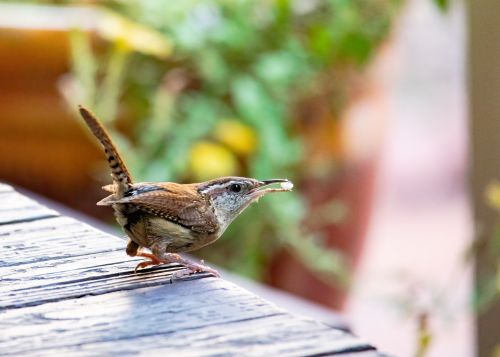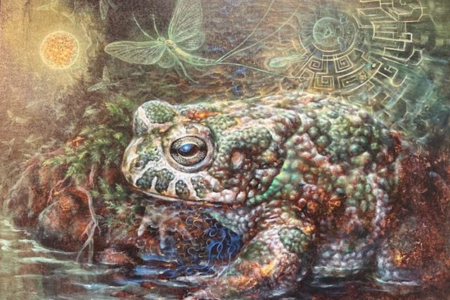The Land We Tend

A Lesson That Sparked a Lifelong Passion
Long before sustainability became a mainstream movement, my visionary sixth-grade teacher introduced our class to the foundational principles of recycling. It was the 1960s, and the San Francisco Bay Area was leading the charge in innovative, community-driven efforts that would eventually shape national environmental policies. Her enthusiasm for stewardship and forward-thinking approach opened my eyes to the delicate balance of nature—and the responsibility we each hold in preserving it. That early influence ignited a lifelong commitment to sustainability, guiding both my personal choices and the eco-conscious philosophy behind my facial spa.
Years later, after relocating to Metro Atlanta, I turned my passion into action. I initiated a monthly neighborhood recycling pickup to support the Firefighters’ Aluminum Cans for Burned Children initiative. My involvement grew, and I became a contributing member of the City of Decatur’s early recycling task force, earning recognition as a “Superstar” for my efforts.
Recycling has always been a priority for me, and witnessing the unique approaches of different communities is inspiring. In Japan, for instance, recycling is deeply ingrained in daily life, with neighborhoods following meticulous collection schedules for specific materials. While we don’t yet have that level of structured convenience here, we do have outstanding alternatives. Sustainability is a journey we take together, with small, everyday actions making a meaningful impact.
One way to make a difference is through CHaRM (Center for Hard to Recycle Materials), a local nonprofit dedicated to keeping hazardous waste and hard-to-recycle items out of landfills and waterways. CHaRM simplifies the recycling process, offering an easy way to dispose of items that might otherwise contribute to environmental harm—from electronics and household goods to hazardous materials and everyday recyclables. With locations in Atlanta and Decatur, it provides a practical, accessible solution for those eager to make a lasting impact.
Taking small steps toward sustainability can be empowering. Whether it’s visiting CHaRM yourself or encouraging friends and family to recycle more, every effort adds up. Together, we can make mindful choices that protect our planet for future generations.


Backyard Birdwatching:
A Daily Ritual of Renewal and Presence
With so much of life happening in front of screens and packed schedules, I’ve found myself craving more time to simply notice what’s around me. Birdwatching in my garden has turned into one of the most peaceful parts of my day—not to identify every bird or keep a checklist, but to just observe. The rustle of wings, a quick dash of color, or the rise of a morning melody helps me slow down and settle in.
It’s surprising how much calm comes from those small moments. They draw me out of my own head and connect me with something steady and natural. No special gear, no set plan—just quiet minutes to look, listen, and be present. Beauty and balance often live in the simplest places, right outside the door. Familiar birds bring a kind of warmth I didn’t expect. There’s comfort in spotting the same cardinal on the fence or hearing sparrows’ soft chatter at the window. It reminds me I’m part of something continuous and alive. And sometimes it’s their personalities—playful, curious, determined—that shift my mood. These gentle interactions don’t just entertain; they nurture emotional balance, often setting the tone for how I move through the day. In fact, birdwatching has become a form of gentle recovery. A few minutes outside—with no phone, no expectations—steadies my breath and quiets my thoughts. Nature asks nothing but offers so much. That subtle reset helps me feel less reactive, more grounded. For me, it’s one of the easiest ways to manage stress.
Of all the birds I’ve watched, the Carolina Wren stands out. These little creatures are full of charm and purpose. One of the most endearing habits? The males build multiple nests, using bits of moss, twigs, and paper scraps and let the female choose the one she wants to raise her young. There’s something touching about that—an instinct to prepare several safe options and let her decide. I’ve seen these wrens nest in planters, porch corners, even coiled garden hoses. They’re resourceful, creative, and committed. Mating for life they stay close to home, often heard before they’re seen, their bold songs echoing through quiet mornings.
Their nesting, singing, and gentle routines mirror what I aim to cultivate in my own life: beauty built from everyday materials, care shown through presence, and small acts that create comfort and continuity. Birdwatching wasn’t something I planned; it simply unfolded and became a steady source of renewal. For anyone feeling overstimulated or stretched thin, I’d suggest just start by noticing. Nature doesn’t rush, compete, or demand—it simply welcomes us in. And sometimes, all it takes is stepping outside, noticing who flies by, and letting that be enough.


The Living Landscape of La Piccola Villa
A Sanctuary Shaped by Water, Wildlife, and Time
At the top of Carlene Way in Lilburn’s "Rivercliff Community", La Piccola Villa rests like a quiet breath—a sanctuary where trees embrace the land and the gentle rhythm of Georgia’s Piedmont hills sets the pace of daily life. My Vibrant-Glow Facial Spa is nestled within this wooded slope, offering more than restorative treatments—it offers a moment to feel connected to nature’s hush.Though recent clearing has opened parts of the neighborhood, the canopy still shelters much of the property. The terrain holds its enduring majesty, with contours that rise and fall like a slow heartbeat—echoing the grounding presence of the surrounding hills. Down below, where the road meets the neighborhood’s tennis courts and pool, the Yellow River curves in a gentle bend. In this hidden pocket of the landscape, beavers have been seen building small dams and forming secret ponds just beyond everyday view.
The Yellow River: A Wildlife Highway
The Yellow River stretches 76 miles from north of Lawrenceville to Jackson Lake, winding through Gwinnett, DeKalb, Rockdale, and Newton counties. In the Rivercliff Community, it flows through an especially scenic stretch between US-78 and Snellville Highway, where shoals and flatwater invite kayaking, tubing, and quiet observation.
Beyond recreation, the river plays a deeper role. It serves as a wildlife highway, a source of water and shelter, and a thread that ties together the natural and human communities of the region. Its riparian zones are rich with life: cardinals, warblers, and woodpeckers nest in the trees; raccoons, foxes, and deer move along the banks; turtles bask on sunlit logs; herons and egrets wade in the shallows; and frogs sing from the underbrush.
Otters on the Move: From River to Pond
From the winding Yellow River below Carlene Way, river otters set out on quiet journeys—slipping through creeks, ditches, and hidden drainages like furry explorers on a mission. These agile travelers know every shortcut, following natural corridors that connect the river to nearby ponds, especially those stocked with bass.
One such pond lies just two houses down from La Piccola Villa—a large, enhanced natural pond tucked between Dean Road and Carlene Way. At dawn and dusk, splashing and swimming shapes have been spotted there, offering subtle signs of otters at play. With noses like fish-finding compasses, they sniff out upstream ponds teeming with dinner. They hop over logs, scramble up muddy banks, and even slide across damp grass when the stream runs dry. Whether swimming, bounding, or belly-sliding, otters adapt to every twist in the terrain. Their short, strong legs and webbed feet make them masters of shallow streambeds, turning even the smallest trickle into a highway of possibility.
The Brook Behind the Sanctuary
Just beyond the backyard at La Piccola Villa, the land slopes gently toward a small brook that winds through the understory. During rainfall, the brook swells and follows the natural contours of the terrain—first feeding the large pond where otters have been seen fishing, then continuing its quiet journey downhill until it joins the Yellow River. This gradual shift from upland to lowland reveals how the landscape moves with the weather—an unseen corridor that may well be part of the otters’ daily route.
Though the river lies mostly hidden from view, its presence is unmistakable—in the rustle of leaves, the movement of deer and otters, and the subtle tilt of the terrain. This place is shaped by the rhythms of water, wildlife, and time. It offers a quiet continuity, holding space for both stillness and change—a sanctuary where the land itself invites renewal.


“At the Origins”
— Artwork by Tatiana Kiselyova (2017)
Where Earth Sleeps and Magic Waits
At La Piccola Villa, I’m fortunate to share the land with an astonishing number of garden toads — quiet, steady companions who appear at dusk as naturally as the evening breeze. All summer long, I watch them emerge from their cool daytime hideaways, hopping confidently across the pathways as if they know this sanctuary belongs to them as much as it does to me. When the streetlights glow, several of them gather beneath the warm pools of light, perfectly still, waiting for moths and beetles to drift down. It’s a small ritual I never tire of witnessing — the soft pulse of life moving through the dark.
Now that winter has settled in, these familiar little beings are safely tucked into their toad hollows, resting deep beneath the leaf litter and roots until the warmth returns. They dig backward into the earth with their strong hind legs, carving out small chambers that hold just enough insulation to protect them from the cold. And nature has equipped them beautifully for this season of stillness: their bodies can slow to a gentle, quiet rhythm, and they produce natural compounds that act like tiny antifreeze molecules, preventing their vital organs from freezing even when the soil around them grows icy. It’s one of the quiet miracles of the natural world — a reminder that resilience often hides beneath the surface.
And yet, beyond their usefulness and their gentle habits, toads carry a deeper story. In the quiet of the night, a toad sits at the edge of the pond. To most, it is plain — mud‑brown, still, unremarkable. But those who look closer see its magic. Born a tadpole, it has already lived one life and transformed into another, carrying the mystery of change within its skin. Ancient peoples saw this and whispered: the toad is a symbol of rebirth, of hidden wisdom, of wealth that hops unexpectedly into our lives. They became guardians of thresholds — creatures that dwell between water and land, shadow and light.
Here at La Piccola Villa, surrounded by woods and the soft murmur of the Yellow River, that symbolism feels especially alive. The toads who live here are more than garden helpers; they are small keepers of the land’s secrets, reminders that magic often hides in the ordinary. Watching them move through the seasons — from summer hunters beneath the streetlamps to winter dreamers in their hollows — is one of the quiet joys of living in this sanctuary.
As winter continues its quiet work, I’m reminded that so much of life happens beneath the surface — in the soil, in the heart, in the places we rarely see but always feel. The toads resting in their hollows, the roots holding steady in the cold, the hush that settles over the land… all of it invites us to slow down and trust the unseen rhythms that carry us forward. May this season offer you the same sense of protection and quiet renewal that the earth offers its smallest creatures, and may you find your own warm hollow of rest until the light returns.
